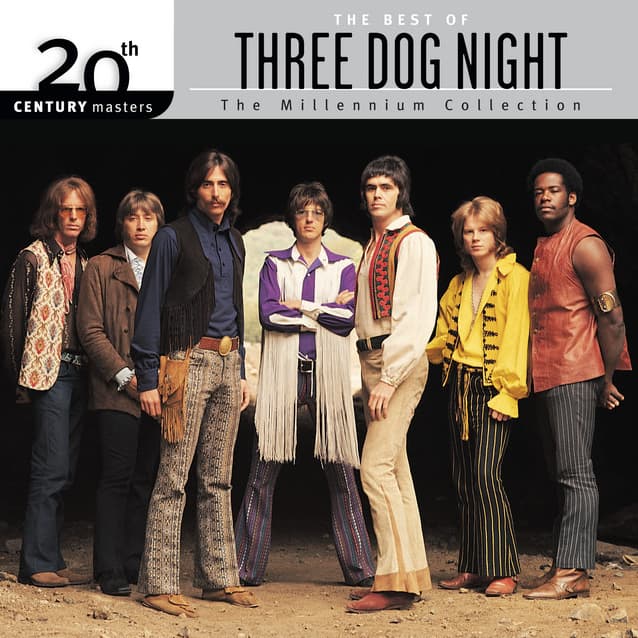
Three Dog Night – The Heartache of Isolation in “One”
Three Dog Night’s “One” captures the pain and loneliness of unrequited love with a raw, unforgettable intensity. Written by Harry Nilsson and popularized by Three Dog Night in 1969, “One” quickly climbed the charts, peaking at No. 5 on the Billboard Hot 100. The song’s haunting lyrics and somber melody make it a powerful reflection on the ache of feeling alone, even in the presence of others, resonating deeply with listeners who know the sting of isolation.
The opening line, “One is the loneliest number that you’ll ever do,” sets a tone of bleakness that carries throughout the song, laying bare a simple but profound truth about the human experience. Nilsson reportedly wrote “One” after experiencing a sense of emptiness while listening to a busy signal on the phone—an endless tone that ironically inspired one of the most poignant songs about loneliness. Three Dog Night’s version captures this essence with an emotionally charged performance that pairs soulful vocals with a sparse, piano-driven arrangement, bringing an urgency and vulnerability to the track.
Musically, “One” is minimalist but effective, allowing each instrument to contribute to the song’s mood of melancholy. The piano is soft but steady, creating a rhythmic heartbeat that underscores the theme of emotional emptiness. The instrumentation gradually builds, adding layers of guitar and percussion that heighten the intensity of the singer’s sense of despair. The lead vocals, filled with longing and desperation, convey a sense of vulnerability that is both haunting and relatable. As the song progresses, it intensifies, reflecting how loneliness can often feel like a weight that grows heavier over time.
Lyrically, “One” captures the complexity of feeling alone, even when surrounded by people. The line “It’s just no good anymore since you went away” reveals the devastation that comes when someone who once brought meaning to life is no longer there. It’s a universal sentiment, one that listeners can easily connect with, whether they’re experiencing the end of a relationship, the loss of a loved one, or simply the loneliness that can creep in even when they’re not physically alone. Three Dog Night’s rendition amplifies this sentiment, making the song both an anthem for anyone who’s felt isolated and a deep exploration of human vulnerability.
The production of “One” is cleverly structured to mirror the song’s narrative. Beginning with a stripped-down sound, it allows the vocalist’s despair to take center stage before building to a powerful, almost desperate crescendo. This arc reflects the emotional journey of the song: from quiet introspection to an overwhelming flood of sadness. Each verse carries a rhythm of longing that climaxes in the repeated refrain, “One is the loneliest number that you’ll ever do,” a line that is both a lament and a statement of painful clarity.
Three Dog Night’s “One” is not only a reflection on personal sorrow but also on the nature of connection and the human need for companionship. In the late 1960s, when the song was released, social movements were encouraging unity and togetherness, and “One” served as a counterpoint, reminding listeners of the pain that can come when such connections are lost or never fully realized. Its stripped-down, sincere style made it stand out from other hits of the era, and it remains one of the band’s most cherished songs.
Decades after its release, “One” has retained its emotional power, featured in movies, TV shows, and playlists that explore themes of loneliness and heartbreak. Three Dog Night’s version is especially notable for its raw authenticity, capturing the heartbreak of solitude in a way that remains deeply relevant today. For anyone who has ever felt the ache of separation or the sting of isolation, “One” is a powerful reminder that sometimes, simplicity and honesty in music can connect us more deeply than anything else.